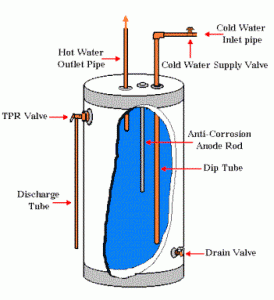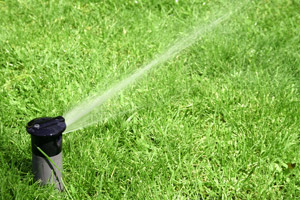All households require hot water, so your hot water heater is one of your most essential home appliances. Water heaters use fuel from a variety of sources including natural gas, electricity, propane and solar. Most water heaters have tanks to hold heated water, but tankless hot water heaters which heat water on demand, are also available. All hot water heaters eventually require maintenance and replacement.
Tankless water heaters are more energy and space efficient, have a longer lifespan and perform better than conventional water heaters, but most homes are still equipped with conventional water heaters, whose average life span is ten to fifteen years. Replacement of a traditional water heater is usually needed because of the build-up of scale and rust on the inside of the tank. Tankless water heaters do not hold heated water in a tank, making their projected lifespan considerably longer. Although a tankless water heater can last up to twenty five years, it is typically only warranted for a period of ten years.
Replacing your hot water heater is a task that can usually be completed in just a few hours by a licenced plumber, but how do you know if your hot water heater needs replacement? Some sure indicators for water heater replacement are:
1.) Your water heater does not produce enough hot water.
2.) Your water is discolored, usually yellow or rust-colored.
3.) Your water heater is leaking.

The build-up of excess sediment inside your water heater may cause it to heat a lower volume of water. Sediment build-up can also cause your water heating element to short circuit, leading to complete failure. Discolored water observed when hot water is coming out of your faucet, is a sign of excess scale built up inside your water heater tank.
Rust or corrosion may be causing your water heater to leak but your plumber should also examine the plumbing leading to and from your hot water heater, for leaks or other issues that could contribute to plumbing problems in your home. Water heater replacement can usually be accomplished with minimum service interruption, when done by a qualified plumbing professional such as K.L. Contractor Plumbing, Inc. in Acworth, GA.
